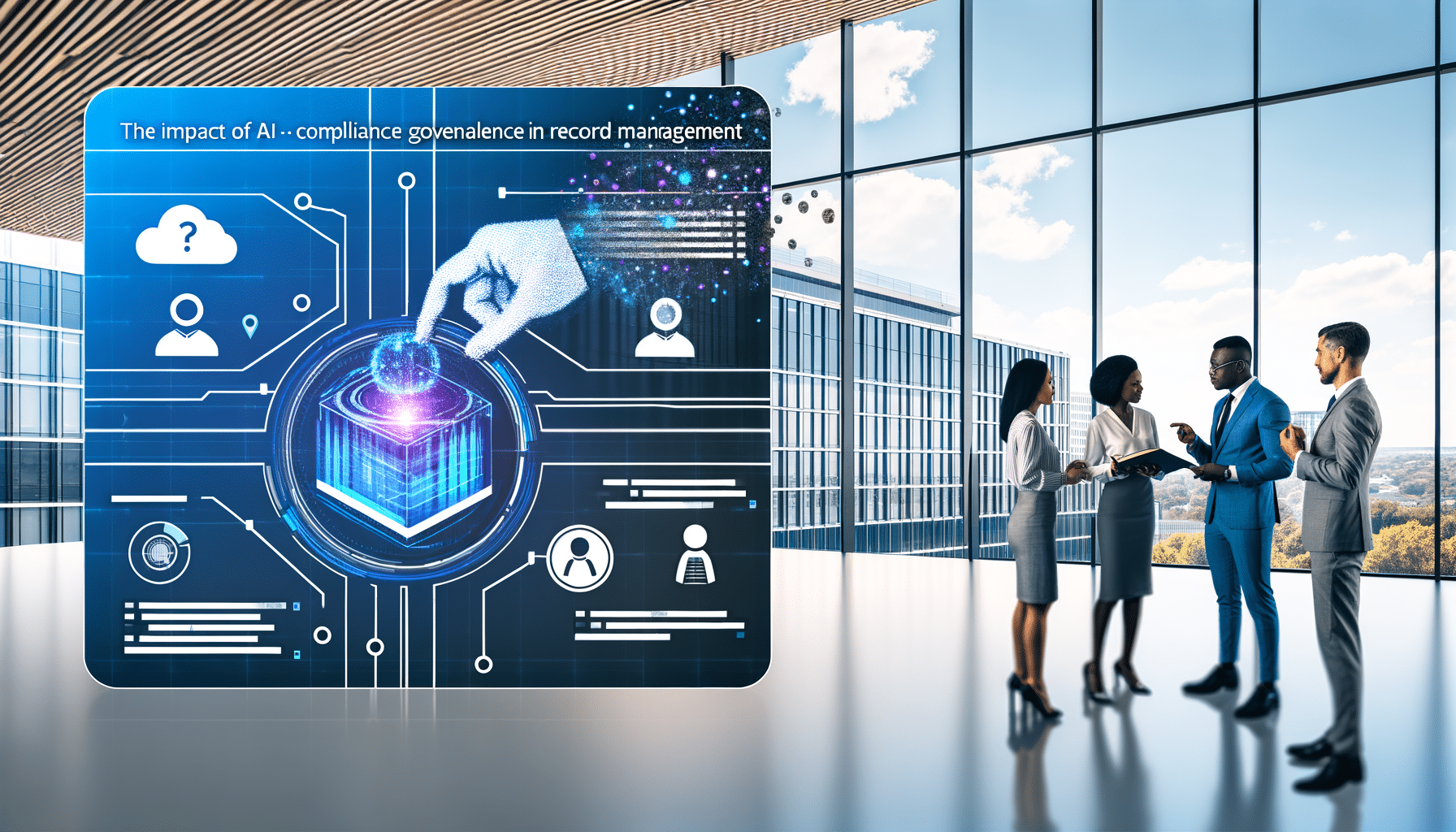- Data Governance
- January 2, 2023
Blockchain Governance: Managing Distributed Records Efficiently

Understanding Blockchain Governance
Blockchain governance is a multifaceted topic, especially when it comes to managing distributed records efficiently. This conundrum is an area I often ponder, drawing from my experiences with Recordskeeper.AI. Blockchain, coupled with Artificial Intelligence, offers revolutionary pathways, but it requires proper governance to yield its full potential.
In essence, blockchain by design is decentralized. This gives it neutrality and security, but also raises questions about governance models—who is responsible for change, and through what mechanism can changes be agreed upon? How do we navigate these intricacies while maximizing blockchain’s potential for record management? Let’s delve deeper.
The Role of Governance in Blockchain
Implementing a governance structure on a blockchain network is not just a necessity; it’s essential for its seamless operation. Without governance, the consensus mechanism can become cumbersome, impacting the management of distributed records. Effective governance empowers organizations to determine who gets to make decisions, how they’re resolved, and how disputes are managed—integral facets for maintaining trust and operational efficiency.
Decentralization Versus Centralization
One of the intrinsic benefits I see with blockchain is its decentralization. However, this presents unique challenges in governance. How do we create an efficient system without compromising on the democratic ethos blockchain advocates?
Decentralized governance offers the perks of inclusivity and equal opportunity for all stakeholders to contribute to decision-making, but it can lead to slower processes, given its nature of collaborating across consensus. Conversely, centralized governance models can streamline decision-making but may betray the inherent goal of decentralized technology. As such, striking a balance is paramount.
Frameworks for Efficient Governance
In my journey with RecordsKeeper.AI, I’ve noticed the importance of defining clear governance frameworks, which become critical for managing records distributed across blockchain platforms. Here are some models worth highlighting:
On-Chain Governance
This model operates within the blockchain framework itself, allowing stakeholders to propose, discuss, and vote on changes directly through the platform. A quintessential example is Tezos, a platform that leverages its on-chain governance to handle amendments efficiently.
On-chain governance ensures transparency and immutability, as all activities are recorded directly on the ledger, streamlining accountability and facilitating an efficient system for managing distributed records.
Off-Chain Governance
In contrast, off-chain governance is driven by external stakeholders, making decisions outside of the blockchain network. Bitcoin is a classic proponent of this governance model, relying on informal consensus amongst its community of developers and users. While this offers flexibility and faster decision-making, it often lacks the transparency and trust on-chain systems naturally provide.
Hybrid Models
Some platforms blend the two aforementioned systems, ushering in hybrid models to harness the benefits of both. These endeavors allow for flexibility akin to off-chain governance and the immutable trust expected from on-chain methodologies—crafted specifically for projects requiring bespoke solutions.
Blockchain Governance in Record Management
When it comes to managing distributed records, blockchain governance plays a decisive role in efficiency and security. Organizations must strategize on how to leverage blockchain’s capabilities while implementing robust governance frameworks to oversee integrity and compliance.
Blockchain’s audit trail capabilities are enhanced by effective governance, enabling seamless tracking of data movement and access. Ensuring compliance with frameworks such as GDPR, HIPAA, and SOX becomes streamlined, reducing redundancy, duplicate effort, and unnecessary bureaucratic impediments.
Challenges and Opportunities
There’s no gain without pain, and blockchain governance is no exception. Agility and scalability, though coveted, are often hard-earned achievements. The dynamic and often experimental nature of blockchain can lead to friction between maintaining decentralization and ensuring streamlined, efficient governance.
Nonetheless, as presented through platforms like RecordsKeeper.AI, we see immense opportunities for automating the categorization and retrieval of records through AI toolsets alongside blockchain’s robust infrastructure. This symbiotic relationship offers fascinating speed and efficiency gains for businesses and government bodies.
Implementing Blockchain Governance in Your Organization
For those entrusted with managing records, employing governance becomes crucial for compliance and efficiency. To begin with, understand your organization’s specific needs and identify the most suitable governance framework. Defining roles and establishing decision-making protocols will aid in the smoother management of distributed records.
Be open to iteration and fine-tuning your governance model as your organization scales. Engaging with stakeholders at every level should remain a priority. After all, good governance is about adapting to evolving needs while preserving integrity and trust.
Conclusion
In summary, while blockchain itself is a marvel of modern engineering, the importance of governance cannot be overstated. It informs the platform’s efficiency, flexibility, and compliance—qualities that are indispensable when managing distributed records. By carefully considering governance models, organizations can chart their paths toward effective record management, leveraging the best of AI and blockchain for a brighter, more efficient future.
For more insights into the world of blockchain and AI, along with their transformative implications, stay connected with me here on Recordskeeper.AI. Let us together push the boundaries of innovation and governance.
Toshendra Sharma is the visionary founder and CEO of RecordsKeeper.AI, spearheading the fusion of AI and blockchain to redefine enterprise record management. With a groundbreaking approach to solving complex business challenges, Toshendra combines deep expertise in blockchain and artificial intelligence with an acute understanding of enterprise compliance and security needs.
Related Posts

Simplify Data Governance Using RecordsKeeper.AI
Make data governance effortless with AI support.
- November 16, 2024

The Impact of AI on Compliance and Governance in Record Management
Learn how AI improves compliance and governance frameworks within record-keeping practices.
- April 22, 2023
Archives
- December 2024
- November 2024
- October 2024
- September 2024
- August 2024
- July 2024
- June 2024
- May 2024
- April 2024
- March 2024
- February 2024
- January 2024
- December 2023
- November 2023
- October 2023
- September 2023
- August 2023
- July 2023
- June 2023
- May 2023
- April 2023
- March 2023
- February 2023
- January 2023
- December 2022
- November 2022
- October 2022
- September 2022
- March 2019
Want to get more content like this?
Signup to directly get this type of content to your inbox!!
Latest Post
Organizing External Auditor Access
- December 22, 2024
Document Control in Manufacturing Plants
- December 21, 2024
Handling Rush Financial Report Requests
- December 20, 2024
Managing Record Access After Staff Changes
- December 19, 2024





